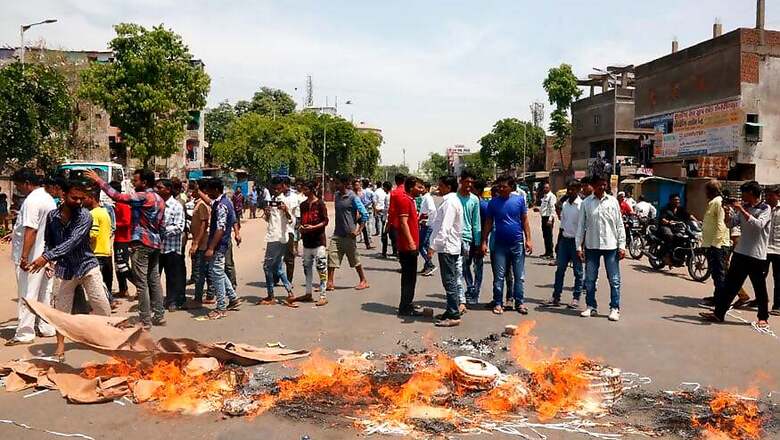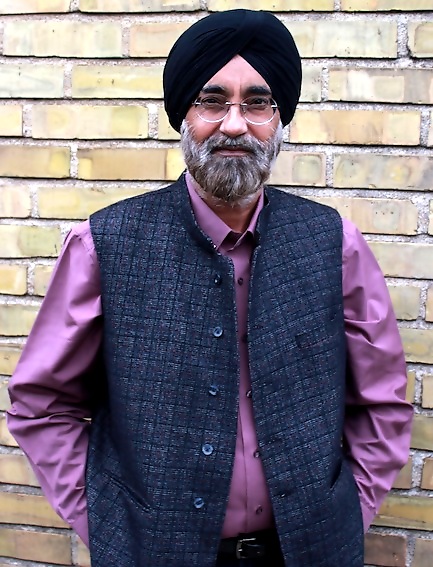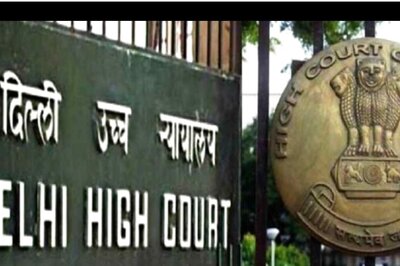
views
The Supreme Court has struck down the need for quantifiable data on SC/STs backwardness for promotions but that might just be the right kind of requirement to review a state policy, according to Surinder S Jodhka, Professor, Centre for the Study of Social Systems, School of Social Sciences Jawaharlal Nehru University. He spoke to News18.com on the verdict, the 'Dalit Elite' and their politics.

Surinder S Jodhka, Professor, Centre for the Study of Social Systems, School of Social Sciences Jawaharlal Nehru University
1) Let me start by the Supreme Court verdict on reservations in the promotions of SC/STs. The court said, ‘No need for quantifiable data on SCs/STs backwardness for promotions,’ this has been welcomed but what are your views?
Well, we need quantifiable data and a time bound system of review for all affirmative action policy. For that review you need data. Any kind of policy needs to be constantly reviewed. If data shows there is discrimination and marginalisation for being a schedule caste, you know there is a need to give protection. And that protection is not possible simply on political strength and perception, we need an independent body with credibility and data.
2) What do you have to say about ‘creamy layer’ in SC/ST quotas? Supreme Court verdict has made the Dalit leaders unhappy by changing the way caste reservations work.
This is a rather strange invocation of 'creamy layer'. Reservation is given to SCs on the grounds of their caste identity and not their economic status. Unless the idea of creamy layer is applied at all levels, it is hard to understand how to make sense of it in case of promotions.
3) The BJP leaders held a meeting called Dalit chintan – inquiring why Dalits are angry. Do you see anger among the Dalits?
The reasons behind this anger are very obvious. Dalits are simply not a mass of poor people. They also have aspirations and many of them have experienced mobility over the past century or so. They also have a kind of Dalit Elite, which has consolidated itself at the national level and their perception increasingly is that the government is not pursuing their issues with sincerity. They feel that at the level of leadership it is the upper caste Hindu who have become even more influential. There is disappointment that even though many Dalit leaders contested on BJP tickets and won but their leaders are not really consulted, not given position of influence and authority. The similar feeling is prevalent in bureaucracy, they are increasingly feeling that there is a subtle process of marginalisation.
There is suspicion. The Dalit Elite does not trust this establishment.
4) How do you define the Dalit Elite?
Those who have come out of local, rural context and have become officers or legislators. They are mostly in the government jobs or in active politics, some of them are full time activists. They are also all educated. They are the second-third generation of Dalits who benefited from reservation. And as a result they see the reservations as the most important thing, something that made it possible for them to experience some amount of mobility in education, jobs and legislative assemblies or a combination of all three. This process of mobility appears to be under attack to them and have started to feel worried about losing this process of mobility because of the right-wing turn and government orientation.
5) Do you see there is a change in what defines the politics of Dalit millennial?
In the UPA period, there was a move to empower Dalits through the private sector. The government push was there to help them become entrepreneurs. But in the last four years the business has not grown, the small business of Dalit would have suffered because of GST and demonetisation. In such a scenario that kind of empowerment is not being talked about. Nobody is looking at the market to liberate them. There is discrimination in the market. These are the realities defining their politics.
6) How do you see the rise of Dalit leaders, Bhim Army chief ‘Azad’, Jignesh Mewani?
Bhim Army is the larger process of new generation of Dalit leaders who are speaking a different language, which is not of electoral politics alone. They are the second-third generation of Dalits and their experience of caste has been different because they grew up in urban settings, and are far more assertive and articulate than the predecessors. These leaders are not talking in caste-ist language even though they know they are being attacked because of their castes.
Today, the educated Dalits are not getting jobs. They are looking for jobs but there are no jobs and no reservations as there are very few jobs in the government sector.
There is also a process of consolidation at the national level. In this, social media is playing an important role. They are connected through various kinds of activism. For instance, Mevani is not confined to Gujarat’s constituency, his influence goes far and wide. He is speaking different kind of language of rights – he is talking about land and rights.
What is central to their rise is the fact that their own leaders were found compromised. They feel they were not be represented with honesty.
7) The Dalits were angry when the provision of SC/ST Prevention of Atrocities Act were diluted making the law less stringent. Now, after the rollback, upper caste is unhappy. Ahead of 2019, how do you think this will play out?
This is a problem for the BJP. If BJP depends only on the upper caste then their numbers are going to be like the Dalits - together they will not make more than 10% 15%. In some areas, upper caste won’t be more than 10% like in south India. So, the BJP needs alliances with other communities.
Amit Shah has been clever in picking up the sub-communities within the large categories and gives them representation. The BJP is very smart and has organisational strength to know their game. They will pick up Dalit community that has not been represented by the BSP. This card was played in the past and is likely to be used again.
But today, people are not only driven by caste, they are driven by experience of unemployment and economy. One look at the younger people in different caste groups, we will find that many are educated, and are going to schools, in fact, the proportion of school going children has grown.
So what happened in the past may not happen again. They are far more mobilised, politically capable of taking their own decisions. Caste is only one variable, there will be other variables determining the 2019 election.
8) What could be the larger wisdom behind the government’s push to use the term SC instead of Dalits? And why Dalit should remain in the reports?
This makes very little sense to me. Dalit is not an abusive term. If they feel the term represents politics much better then who is the government to say that. All Dalits are not SC, and all SCs are not Dalits. These are two different kind of concepts. The term SC is an administrative category, the very people who have not been untouchables are listed as SC. Dalit is a political construct while SC is not, and as it is a classification.
9) Can you summarize for us, the way caste politics is changing since 2014?
Not much. Just that Dalit politics is more articulate and has to be more strategic. In last four years, many of them feel that they lost rather than gained. Space available for their kind of politics has shrunk. The reservations are under attack. They have to be far more strategic in protecting whatever is theirs. It came to them after struggle.


















Comments
0 comment